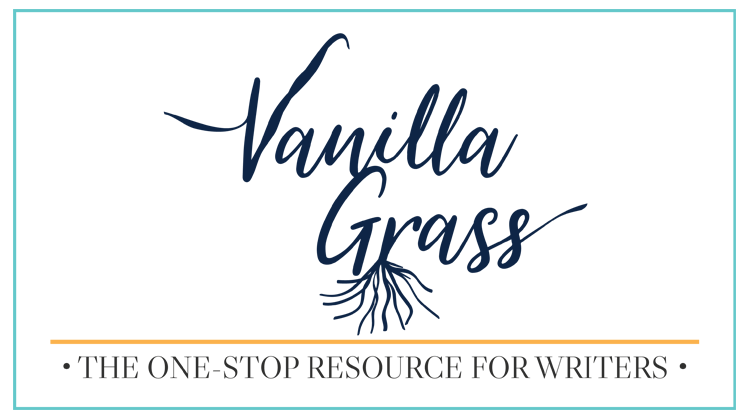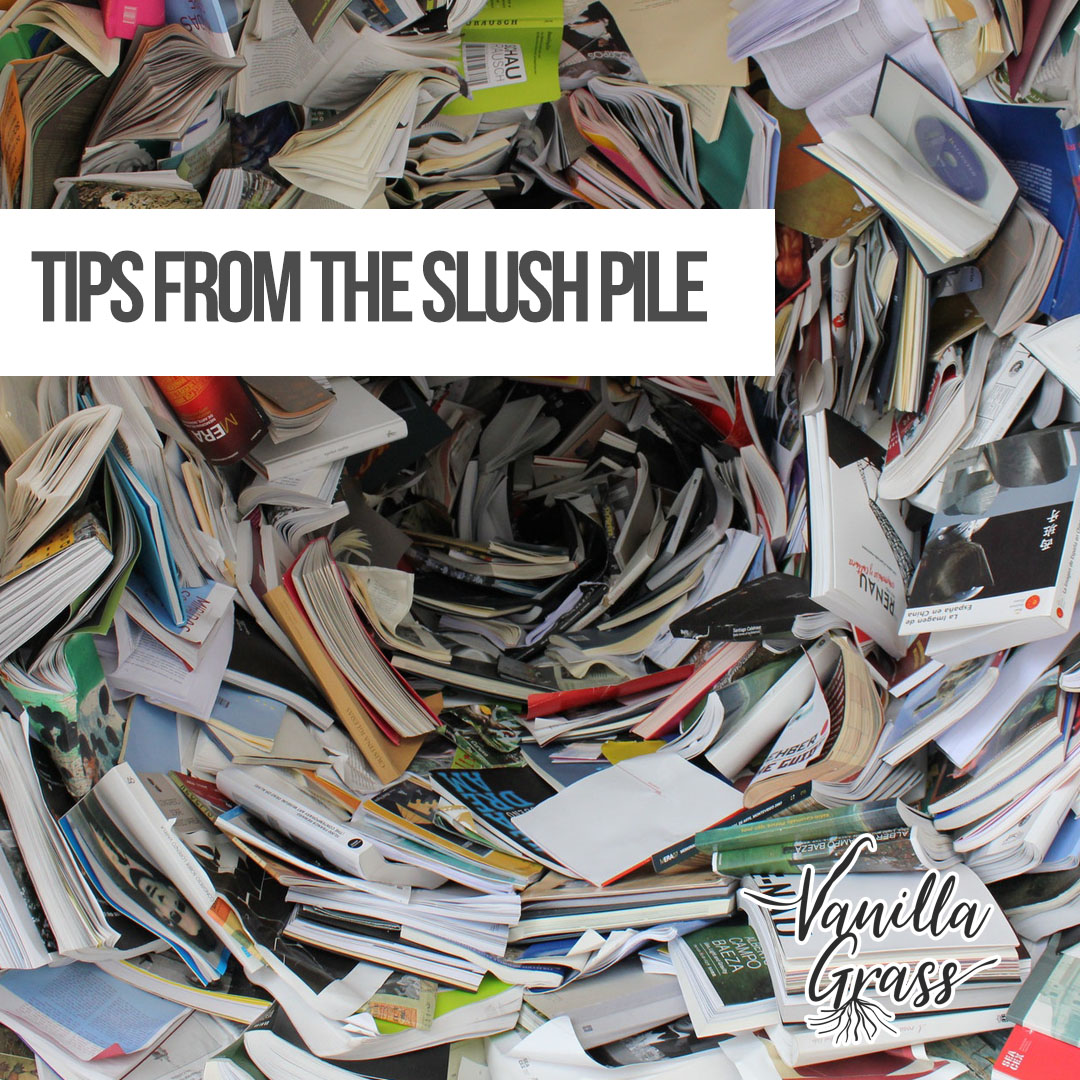Today’s guest post comes from the amazing Jessica Guernsey, a manuscript evaluator/slush pile reader for two publishers. Read on to see her tips from the slush pile – how to know when you’re ready to submit.
Congratulations! You’ve finished your book! That’s a huge accomplishment. Now, you’re ready to find an agent or publisher. But how do you know if you’re ready to submit? As someone who has read the slush pile for two publishers for a combination of almost 10 years, I’ve got a few tips for you.
1. Never Submit Your First Draft

Do not submit your first draft. Ever.
Let’s say you are so very excited about a new story you wrote. It’s got everything! An epic fantasy with romance, orcs, battle scenes, romance between orcs during a battle. Everything. You just typed THE END five minutes ago and you are ready to submit it to receive your fame and glory.
But wait. You might want to go back over those pages. Maybe you changed that one guy’s name halfway through, then made him into identical twins instead. You’ll want to fix that. Or the first battle needs to be moved up a couple of chapters to increase pacing and tension, while trimming the big feast toward the end. The point is that your first draft won’t be perfect. Edits are required.
If you’re the kind of person that wants to respond to this by saying “That’s what the editor is for!” then please allow me to stop you. Editors are paid for their time and work. If you want all your grammar mistakes and plot hiccups fixed, an editor gets paid. Do you really think publishers will invest the money to fix all the times you wrote “your” instead of “you’re” when you’re an untried, debut author? No. No, they will not. If you are a top-ranked author who consistently sells thousands of books with each release, then maybe.
When I was still new to reading the slush pile, I had a manuscript that I hadn’t started yet when I got a message from the author. They had finished the second draft and would I be interested in reading that instead? Bit of a facepalm moment. They received a form rejection.
2. Have Beta Readers Review Your Work.
You need another set of (unbiased) eyes on your manuscript.
A beta reader is someone (usually not your mom) who reads your finished manuscript after edits and before submitting. These can be friends or fellow writers. Some are paid for their feedback; most are not.
Beta readers are an essential part of the writing process, especially when you are just starting out and learning story mechanics. The story is so rich and full inside your head, but it doesn’t always make it out onto the page like that. A good beta reader will help you find those gaps. And maybe they’ll find that place where you still mention that character by the wrong name.
As with all feedback, you don’t have to make all the changes they suggest. This is still your story and you are the boss. However, if more than one beta reader says that big, long orc wedding at the end is really unnecessary, then you might want to listen. They may have a point, even if it’s one you don’t particularly like.
Along with the helpfulness of beta readers making comments on your manuscript, please make sure that the final version you submit does not have any comments on it. There is a function on documents that allows you to hide comments (usually under the “View[1] ” tab). About once a quarter, I get a manuscript that still has comments (even from agents). Some just don’t know they submitted the wrong one. But there was one where the author then argued with the beta reader’s comments in the margins. Not a good look for the author (especially when I agreed with the beta reader). Another one was speckled with positive comments like “this guy sounds HAWT” and “OMG, that’s so funny” (it really wasn’t) which I’m pretty sure were left in there intentionally to show me what a great writer they are. The comments were distracting me from the actual story and that is something you definitely don’t want to do.
3. Do Your Research.

This tip is actually two-fold.
A) When querying, figure out which agents are looking for orc romances or which publishers accept epic fantasies. If a publisher wants only orc cookbooks, they won’t look twice at your orc epic fantasy, no matter how brilliant it might be. I see this frequently. An author sends out a blanket submission, sending their manuscript to every possible publisher hoping for a bite, ignoring the guidelines very clearly stated on the publishers’ websites. “No Orcs” means “No Orcs.” Your orc manuscript is an easy rejection.
I once read a beautifully written historic story that broke one of my publisher’s cardinal rules: no explicit sex. No matter the reasoning or justification for this content’s inclusion, this is a rule that doesn’t get broken and the book received a form rejection. It is very likely that another publisher will accept the book and good for them. But for us, it was a hard no.
B) Address your query to an actual person. Take the time to look up the name of the agent, acquisitions editor, or whomever runs the slush pile. “To Whom It May Concern” is too easy and cold. Tailor each query to the company you are submitting to and that means using a real person’s name, making doubly sure to spell that person’s name correctly. Very little effort but it makes an impression.
Or you could be like the would-be author who sent a “TWIMC” cold query (i.e.: unrequested submission) to XYZ Publisher and stated in the query that XYZ Publisher had expressed an interest in this manuscript. By “interest,” they must have meant we hadn’t rejected it the moment it arrived.
4. Learn How to Write a Query Letter.
Please. No, seriously. Please.
There are so very many excellent resources on how to write a query letter (https://queryshark.blogspot.com/), that the lack of a decent attempt at one shows me just how little research you’ve done on what it takes to get published. This does not give me high hopes about the quality of the story you’ve submitted. Give me the chance to get excited about your story, to be ready to dive in and start reading. If you tell me more about the stakes, twists, and interesting bits of the story, I’m more likely to keep reading, knowing they are coming. Queries letters don’t have to be perfect but they do have to be interesting.
Unfortunately, queries are also highly subjective. So what interests one agent or editor might not interest another. This is also a another reason to do your research. Agents, editors, and publishers will give interviews on what they look for in queries as well as manuscripts. Find these and learn from them.
A fair number of submissions I see do not have a real query letter. These are the manuscripts that I don’t spend a lot of time on because I don’t know what kind of story to expect.
5. Follow the Guidelines

For the love, just follow them!
On the publisher or agent website, they will have a list of rules or guidelines for submitting to their organization. Some of them seem minor, like which font to use. But others are big, like they’re not accepting unsolicited/unagented manuscripts currently. You may be asked to include your manuscript or sample chapters in the body of the email or they may want it as an attachment. Whatever they are asking, do it. Guidelines are there for a reason. They streamline the submission process. They also show that you can follow directions. Agents and publishers get *heaps* of submissions every day. They may not have time to read all of them as carefully as they’d like. So if they see one that didn’t follow the guidelines, chances are, it will receive a form rejection without a closer look. These people are busy. Don’t make it harder for them.
I opened a submission that did not follow the guidelines but I started reading anyway. The weird formatting and font choice got in the way of the actual story. And I spent too much time questioning why they opted to format it in such an odd way (and trying to read the overly decorative font). If you have an idea for specific formatting that is absolutely essential to your book, then mention this in the query. Or make a note in the manuscript itself. But your submitted manuscript should follow their guidelines; not yours.
So what do you think? Are you ready to submit? Finished your edits? Read through and implemented (some) beta reader suggestions? Did you remember to turn off comments on your final manuscript? Got your list of agents and publishers that are looking for your orc romance? Polished up that query letter? Adjusted your submission based on the guidelines? Excellent. Now you’re ready to submit.
BIO:
Jessica Guernsey writes Urban and Contemporary Fantasy novels and short stories. A BYU alumna with a degree in Journalism, her work is published in magazines and anthologies. By day, she crushes dreams as a manuscript evaluator/slush pile reader for two publishers. Frequently, she can be found at writing conferences. She isn’t difficult to spot; just look for the extrovert.
While she spent her teenage angst in Texas, she now lives on a mountain in Utah with her husband, three kids, and a codependent mini schnauzer. Connect with her on Twitter @JessGuernsey

